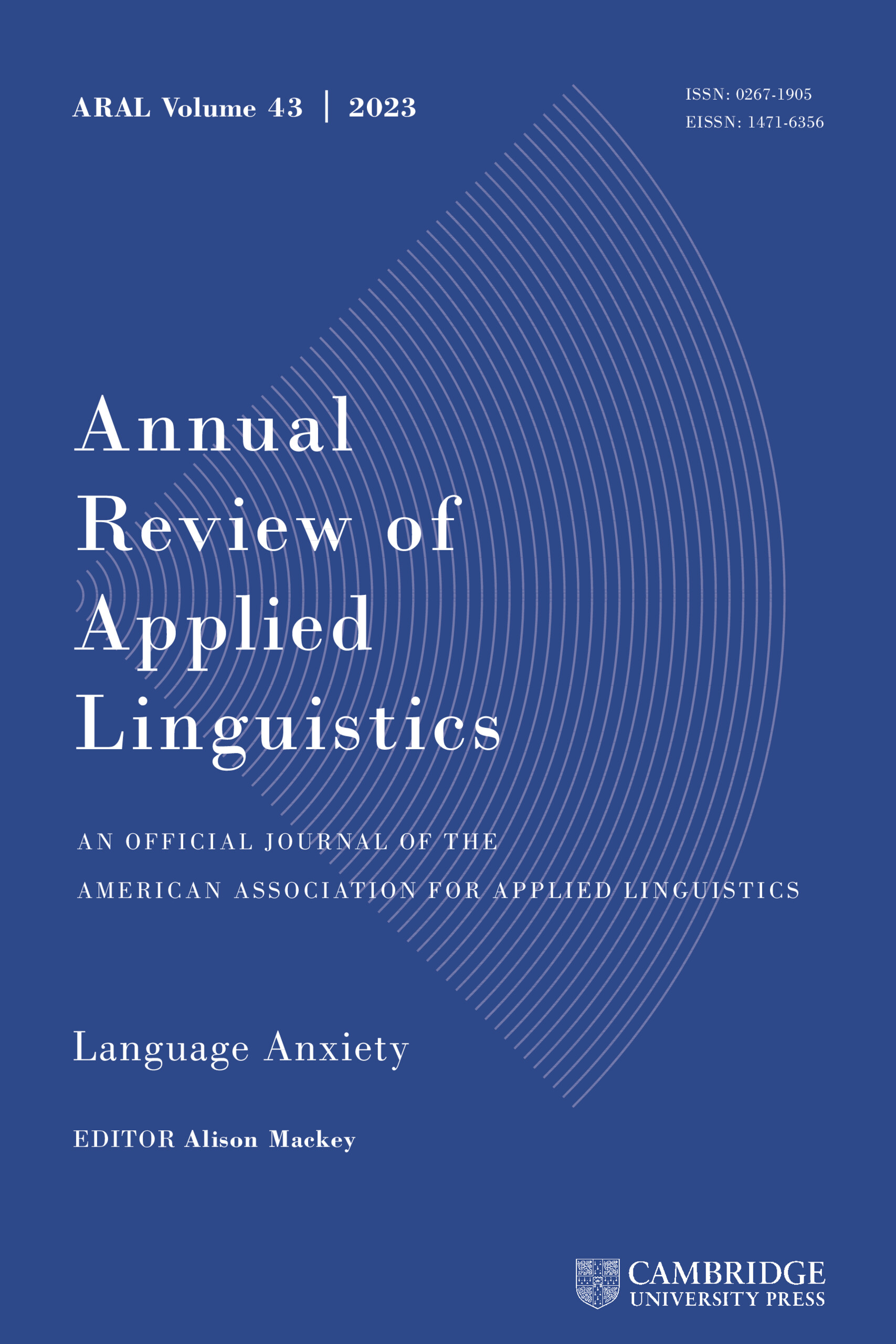Article contents
A fish tale about “fieldwork,” or toward multilingual interviewing in applied linguistics
Published online by Cambridge University Press: 17 March 2022
Abstract
Focused as we are on uncovering how language works, many linguists are less cognizant of how the communicative strategies we employ in our knowledge-gathering activities impact the language users, identities, and communities we connect with and learn from. This autoethnographic essay, offered as a critical, introspective and analytical account by a U.S.-based, African American woman researcher, unfolds across three scenes of embedded ethnographic research in Micronesia and Tanzania—ocean-facing nations separated by a distance of more than 12,000 kilometers. Each scene's storytelling and dialogue—among users of Pohnpeian and Nukuoro in Micronesia, and users of Korean and Swahili in Tanzania—depicts how competing ideas about the value of marginalized languages surface within the talk of the research interview through allusions to socioracial power and linguistic capital. The essay concludes with a discussion of how a shift toward multilingual, multi-person interviewing can expand and deepen the insights of language-focused research.
Koasoaiepen ropirop, de petehkpen kederpohnpeh sang pali en lokaia tohto nan “applied linguistics” de kasukuhl me pid duwen lokaia kan
Ni atail kin rapahki duwen lokaia eh kin doadoahk nan pwungen pwihn en aramas akan, tohtohn linguist, de me kin kasukuhliki duwen lokaia, sohte kin tehk lipwalipw me mie sang atail doadoahk rehn irail pwihn en aramas akan de tohn wehi kan me kitail kin patehng de kasukuhlsang. Doaropwe wet pid soaii kan me sansalehr rehn ekei me kin lokaiahn Pohnpei oh lokaiahn Nukuoro nan Micronesia, oh pil ekei me kin lokaiahn Korea oh lokaiahn Swahili nan Tanzania oh sawehwe kan me kin pwarada ni ansoun ropirop oh kapeidek. Doaropwe wet imwsengkihla koasoaiepen duwen katohtohwe tohn kederpohnpeh de katohtohwe lokaia me kin doadoahk pwehn katehlapahla pepehm kan oh audepen ropirop me pid kasukuhl duwen loakaia.
Kisa cha samaki kuhusu “utafiti wa uwandani”, au kuhamia kwa kuhoji kwa lugha nyingi katika isimu matumizi
Kama tunavyozingatia kuhusu kufunua jinsi lugha inavyotenda, wanaisimu wengi hawafikirii kuhusu jinsi mbinu za kuwasiliana tunazotumia kwa matendo yetu ya kusanya data zinaathiri watumiaji wa lugha, maisha yao, na jumuia tunazounganisha nao na vilevile zinazotufundisha. Insha hii ya kiautoethnografia, iliyotolewa kama uchanganuzi ujifikiriao na uhakikio ulioandikwa na mtafiti mwanamke na Marekani Mwaafrika (anayeishi Marekani), inaendelea kwa njia ya maonyesho (masimulizi) matatu ya utafiti wa kiethnografia uwekao kwenye Mikronesia na Tanzania—mataifa yanayotanisha bahari na ambayo yanatenganishwa na umbali ya zaidi ya 12,000 kilomita. Usimulizi na mazungumzo ya kila onyesho la insha hii—ambalo linaeleza watumiaji wa lugha za KiPohnpei na KiNukuoro kwenye Mikronesia, na watumiaji wa lugha za Kikorea na Kiswahili kwenye Tanzania—unafafanua namna ya mawazo yanayotofautiana kuhusu thamani ya lugha zibaguliwazo yanaonyeshwa kwenye mazungumzo ya mahojiano ya kiutafiti kwa njia ya madokezo ya uwezo wa kimbari na mtaji ya kilugha. Insha hii inakamilishwa na majadiliano ya namna ya hamia ya kuhoji kwa lugha nyingi, na kwa watu wengi, inaweza kupanua na kuzidisha chini umaizi ya utafiti unaolenga lugha.
“현지조사”에 대한 낚시꾼 이야기, 또는 응용언어학에서 다국어 인터뷰를 향하여
언어학자들은 언어가 어떻게 작동하는가에 대한 논의에 초점을 맞추고 있기 때문에, 지식 수집 활동에 사용하는 의사소통 전략이 우리가 연결하고 배우는 언어 사용자, 정체성 및 커뮤니티에 어떻게 영향을 미치는지에 대하여 인지하는 정도가 상대적으로 미흡한 편이다. 본고에서는 미국에 기반을 둔 흑인 여성 연구자가 비판적, 자기성찰적, 분석적 설명을 통하여 12,000km 이상 떨어진 바다를 마주하고 있는 마이크로네시아와 탄자니아에서 수행한 자기성찰적 민족지 연구의 세 개의 장면을 기술한다. 각 장면의 스토리텔링, 그리고 마이크로네시아의 폰페이안과 누쿠오로 사용자들, 탄자니아의 한국어 및 스와힐리 사용자들과의 대화는 사회인종적 권력과 언어 자본에 대한 암시를 통해 연구 인터뷰의 주제에서 소외된 언어의 가치에 대한 경합적 논의들을 제시한다. 결론에서는 다국어, 다자 인터뷰로의 전환이 어떻게 언어 중심 연구의 통찰력을 확대하고 심화시킬 수 있는지에 대한 논의로 마무리된다.
- Type
- Research Article
- Information
- Copyright
- Copyright © The Author(s), 2022. Published by Cambridge University Press
References
- 3
- Cited by



